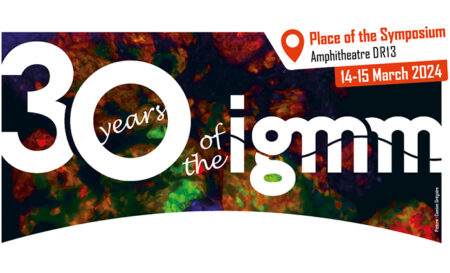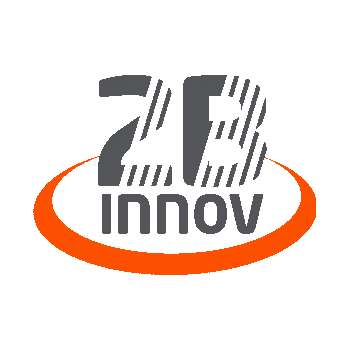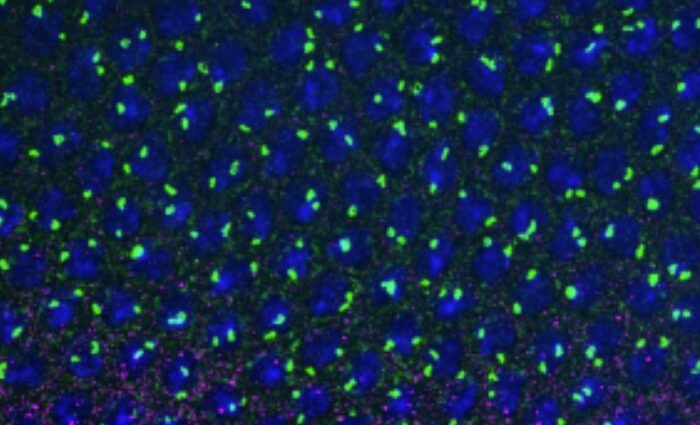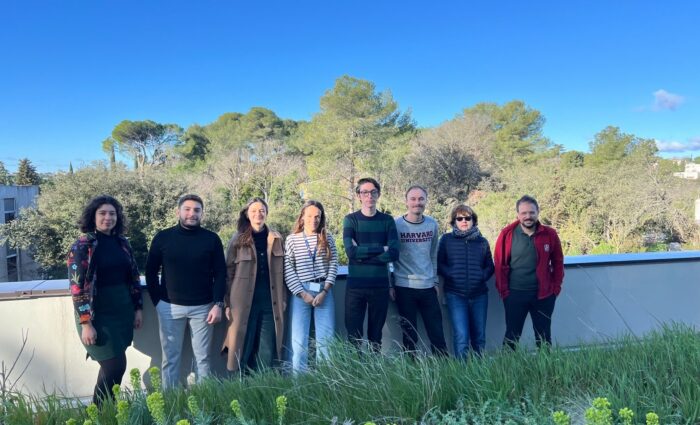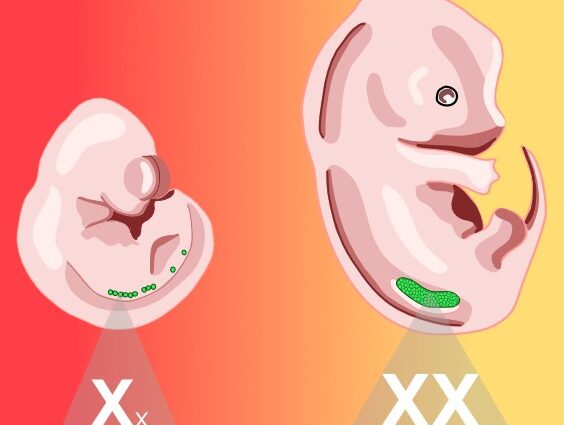30th Anniversary symposium - celebrating IGMM alumni
Institut de Génétique Moléculaire de Montpellier
CNRS UMR 5535, University Montpellier
14-15th of March 2024
Amphitheatre of the Delegation regional, 1919 Route de Mende, Montpellier
Thursday, March 14th
14:00: Welcoming address by Etienne Schwob, Director of IGMM
RNA Biology
Chair: Mounia Lagha
14:30: Keynote: Fatima Gebauer, Centre for Genomic Regulation, Barcelona
“RNA-binding proteins in cancer progression”
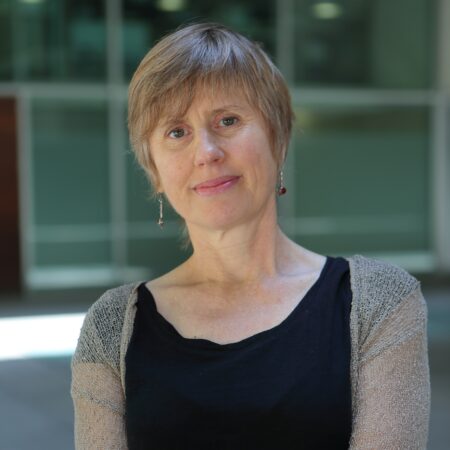 Fátima Gebauer received her PhD in 1990 from the Autónoma University of Madrid, and performed postdocs in the labs of Joel Richter (UMAss, USA) and Matthias Hentze (EMBL, Germany). In 2000, she obtained a staff scientist position at EMBL, and in 2002 an independent position at the CRG (Barcelona, Spain), where she is Senior Group Leader and Co-coordinator of the Genome Biology Program. Fátima is EMBO member and associate editor of the RNA journal. Research in her lab centres on RNA-binding proteins and mechanisms of translational control in human cancer (mostly melanoma). Approaches include high-throughput methods (iCLIP, RNA-Seq, polysome-Seq, RIC, proteomics), biochemistry, cell-based assays, genetics and animal models.
Fátima Gebauer received her PhD in 1990 from the Autónoma University of Madrid, and performed postdocs in the labs of Joel Richter (UMAss, USA) and Matthias Hentze (EMBL, Germany). In 2000, she obtained a staff scientist position at EMBL, and in 2002 an independent position at the CRG (Barcelona, Spain), where she is Senior Group Leader and Co-coordinator of the Genome Biology Program. Fátima is EMBO member and associate editor of the RNA journal. Research in her lab centres on RNA-binding proteins and mechanisms of translational control in human cancer (mostly melanoma). Approaches include high-throughput methods (iCLIP, RNA-Seq, polysome-Seq, RIC, proteomics), biochemistry, cell-based assays, genetics and animal models.
15:05: Isabel C. Lopez Mejia, Université de Lausanne
"Macronutrient and signal-induced alternative splicing in adipocytes"
Alumni from Jamal Tazi's Team
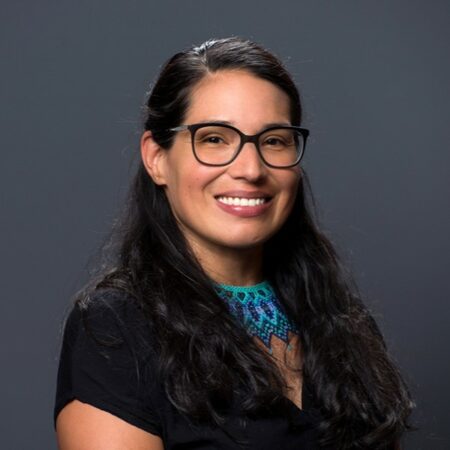 Isabel C. Lopez-Mejia is an Assistant Professor at the Center for Integrative Genomics at the University of Lausanne. Isabel studied at the University of Montpellier and joined the IGMM for her Master thesis and PhD project, working on RNA splicing in the lab of Prof. Jamal Tazi. During her years at the IGMM she developed a keen interest for RNA biology and particularly alternative splicing. For her postdoc she joined the Department of Physiology, University of Lausanne, where she worked on the control of energy homeostasis. As a recipient of and Ambizione and a PRIMA grant from the Swiss National Science Foundation, she started her independent research in 2017, in the Center for Integrative Genomics at the University of Lausanne. Her group uses molecular biology, high-content imaging, RNA sequencing and bioinformatics to understand how cells and tissues adapt to external cues (nutrients, hormones, …) by modulating alternative splicing.
Isabel C. Lopez-Mejia is an Assistant Professor at the Center for Integrative Genomics at the University of Lausanne. Isabel studied at the University of Montpellier and joined the IGMM for her Master thesis and PhD project, working on RNA splicing in the lab of Prof. Jamal Tazi. During her years at the IGMM she developed a keen interest for RNA biology and particularly alternative splicing. For her postdoc she joined the Department of Physiology, University of Lausanne, where she worked on the control of energy homeostasis. As a recipient of and Ambizione and a PRIMA grant from the Swiss National Science Foundation, she started her independent research in 2017, in the Center for Integrative Genomics at the University of Lausanne. Her group uses molecular biology, high-content imaging, RNA sequencing and bioinformatics to understand how cells and tissues adapt to external cues (nutrients, hormones, …) by modulating alternative splicing.
15:40: Jamal Tazi, University Montpellier, Abivax
"A new pharmaceutical concept for developing anti-inflammatory drugs: Targeting the Cap Binding Complex"
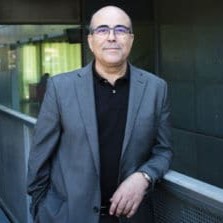 Jamal Tazi is professor of functional genomics at the University of Montpellier, and Senior Member at the University Institute of France, presently Vice President Research at ABIVAX. His research has uncovered key factors and regulatory mechanisms involved in alternative splicing and their implication in human disease. This allowed him to win four prizes; by the French Academy of Sciences in 1999, the French Academy of Medicine in 2006, in 2010 ARRI and in 2017 Médaille de l'innovation of CNRS. To ensure the transition between basic and applied research, and also to support these innovative projects to the clinical stage, Jamal Tazi founded the company Splicos in 2008 and ABIVAX in 2014. He has co-authored over 120 publications in some of the leading international journals.
Jamal Tazi is professor of functional genomics at the University of Montpellier, and Senior Member at the University Institute of France, presently Vice President Research at ABIVAX. His research has uncovered key factors and regulatory mechanisms involved in alternative splicing and their implication in human disease. This allowed him to win four prizes; by the French Academy of Sciences in 1999, the French Academy of Medicine in 2006, in 2010 ARRI and in 2017 Médaille de l'innovation of CNRS. To ensure the transition between basic and applied research, and also to support these innovative projects to the clinical stage, Jamal Tazi founded the company Splicos in 2008 and ABIVAX in 2014. He has co-authored over 120 publications in some of the leading international journals.
Friday, March 15th
Virology, Immunology & Biotherapy
Chairs: Karim Majzoub & Valerie Dardalhon
9:00: Keynote: Jerome Custers, Sr Scientific Director Vaccine Research, Janssen, J & J
“Development and Optimization of an Adenoviral Vector Platform”
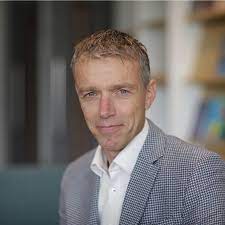 Jerome Custers, Ph.D., is Senior Scientific Director Virology and Advanced Therapy Interface at Johnson and Johnson Innovative Medicine. He joined Johnson and Johnson in 2011 through the acquisition of Crucell Holland BV, a Dutch Biotech company he joined back in 2002 as a research scientist to work on the development of vaccines against a variety of infectious diseases based on adenoviral vectors. Genetic engineering of viruses has been at the core of his vaccine research performed with the last years expanding into structural vaccinology and RNA vaccines for antigen delivery. Jerome co-authored more than 50 peer-reviewed scientific papers and more than 25 patent applications. Jerome’s current responsibilities include gene therapy platform development and transitioning gene therapy product candidates from Discovery to Product Development. Previously, he has been instrumental in developing the Adenoviral vector platform technology at J&J that has resulted in the successful development of two authorized vaccines (Ebola and COVID-19) and several investigational vaccines in development.
Jerome Custers, Ph.D., is Senior Scientific Director Virology and Advanced Therapy Interface at Johnson and Johnson Innovative Medicine. He joined Johnson and Johnson in 2011 through the acquisition of Crucell Holland BV, a Dutch Biotech company he joined back in 2002 as a research scientist to work on the development of vaccines against a variety of infectious diseases based on adenoviral vectors. Genetic engineering of viruses has been at the core of his vaccine research performed with the last years expanding into structural vaccinology and RNA vaccines for antigen delivery. Jerome co-authored more than 50 peer-reviewed scientific papers and more than 25 patent applications. Jerome’s current responsibilities include gene therapy platform development and transitioning gene therapy product candidates from Discovery to Product Development. Previously, he has been instrumental in developing the Adenoviral vector platform technology at J&J that has resulted in the successful development of two authorized vaccines (Ebola and COVID-19) and several investigational vaccines in development.
9:35: Oumeya Adjali, University of Nantes
"Gene therapy using AAV viral vectors: Great promises and remaining challenges"
Alumni from Naomi Taylor's Team
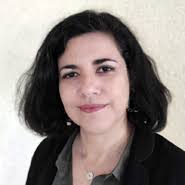
Oumeya ADJALI (MD, PhD), graduated with a MD at the University of Constantine (Algeria) in 1999 and with a PhD at the University of Montpellier (France) in 2006. She joined the French Institute of Health and Medical Research INSERM in 2010. She is a senior scientist (Research Director) and the head of the INSERM UMR 1089 gene therapy laboratory (TarGeT, Translational Research in Gene Therapy) in Nantes University since January 2017. She has been working at the interface of cell and gene therapies using lentiviral and Adeo-Associated Viral (AAV) viral vectors for more than 22 years. Since 2007, her research focuses on the development of AAV gene therapy products including viral vector design, preclinical evaluation in relevant models, immunogenicity monitoring and manufacturing. She has been involved as an immunology expert in several preclinical and clinical AAV trials for muscular CNS and retinal diseases. She is also the scientific coordinator of the « Centre de Production des Vecteurs or CPV” which received the label “Industrial Integrator in Gene Therapy” from the French government since July 2020. Oumeya ADJALI is/has been involved in different scientific committees (Immunology and AAV ESGCT committees, MabDesign scientific strategy committee, CSS7 inserm commission, Scientific council of Nantes University, Regenerative Medecine ANR committee…). She is currently the vice-president of the French Society of Gene and Cell Therapy (SFTCG).
10:40: Matthieu Perreau, Lausanne Université Hospital
“HIV persistence in lymph node”
Alumni from Eric Kremer's Team
 Matthieu Perreau is Associate Professor at the Division of Immunology and Allergy, Lausanne University Hospital, Lausanne, Switzerland. After receiving his PhD from Montpellier University (France), he subsequently joined the Service of Immunology and Allergy, Lausanne University Hospital, Lausanne, Switzerland focusing on the evaluation of HIV-1 vaccine immunogenicity and on the delineation of HIV-1 immunopathogenesis. More recently, he focused on the identification of immunological and virological parameters contributing to HIV persistence.
Matthieu Perreau is Associate Professor at the Division of Immunology and Allergy, Lausanne University Hospital, Lausanne, Switzerland. After receiving his PhD from Montpellier University (France), he subsequently joined the Service of Immunology and Allergy, Lausanne University Hospital, Lausanne, Switzerland focusing on the evaluation of HIV-1 vaccine immunogenicity and on the delineation of HIV-1 immunopathogenesis. More recently, he focused on the identification of immunological and virological parameters contributing to HIV persistence.
11:15: Nicolas Manel, Institut Curie, Paris
“Intracellular DNA sensors: from antiviral immunity to cancer immunotherapy and aging”
Alumni from Marc Sitbon's Team
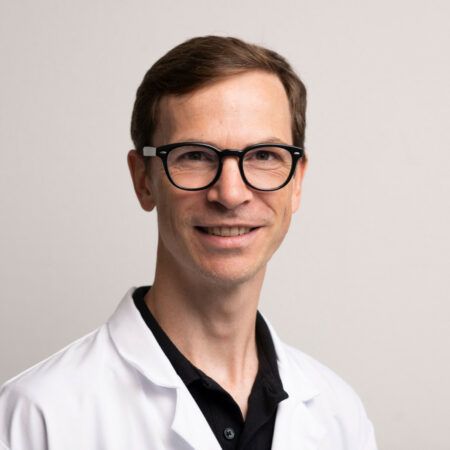 Nicolas Manel’s research activity has focused on the central question of self/non-self discrimination in biology, at the interface between virology and immunology (human and mouse). During his PhD, he identified that the glucose receptor GLUT1 is the receptor for the Human T-cell Leukemia/Lymphoma Virus. In his postdoc, he and his collaborators discovered that human dendritic cells can sense intracellular HIV. As an independent PI since 2010 at Institut Curie, the initial interest of his team in HIV expanded to general mechanisms of nucleic acid immunity, and their relevance to viral infections, cancer, aging, and their applications.
Nicolas Manel’s research activity has focused on the central question of self/non-self discrimination in biology, at the interface between virology and immunology (human and mouse). During his PhD, he identified that the glucose receptor GLUT1 is the receptor for the Human T-cell Leukemia/Lymphoma Virus. In his postdoc, he and his collaborators discovered that human dendritic cells can sense intracellular HIV. As an independent PI since 2010 at Institut Curie, the initial interest of his team in HIV expanded to general mechanisms of nucleic acid immunity, and their relevance to viral infections, cancer, aging, and their applications.
Lunch
Tumour environment
Chairs: Michael Hahne & Daniel Fisher
13:30: Keynote: Trevor Graham, Institute of Cancer Research, London
"Tracking the evolutionary dynamics of 2000 lymphoid cancers"
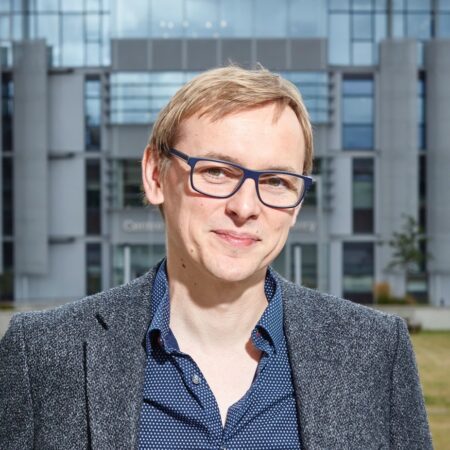
Professor Trevor Graham is Director of the Centre for Evolution and Cancer at the Institute of Cancer Research in London, UK. He leads an interdisciplinary lab that combines mathematical modelling with molecular biology with the goal of measuring human somatic evolutionary dynamics. His translational interests in cancer span early detection through to treatment of metastatic disease and he has a particular interest in colorectal carcinogenesis. Trevor was elected a Fellow of the Academy of Medical Sciences in 2022 for his work on cancer evolutionary genomics.
14:05: Leila Akkari, The Netherlands Cancer Institute, Amsterdam
“Dissecting and harnessing myeloid cell heterogeneity in cancer”
Alumni from Ula Hibner's Team
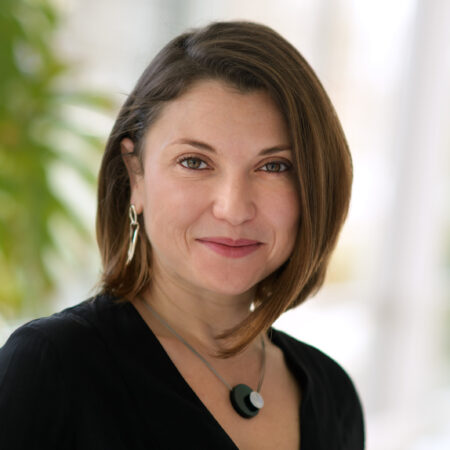
Leila Akkari is an Associate Professor and Group Leader at the Netherlands Cancer Institute in Amsterdam. In 2019, she was nominated Junior Member of the Oncode Institute and became senior member in 2023. After an MSc between Montpellier (France) and Manchester (UK), she performed her PhD studies in cell biology at IGMM, and completed her postdoctoral training in cancer biology, immunology and genetics, at the Memorial Sloan Kettering Cancer Center in New York City. In 2017 she joined the Netherlands Cancer Institute in Amsterdam, where she established her research laboratory. Research in her group focuses on the role of innate immune cells, particularly macrophages, in tumor maintenance and therapeutic resistance in brain and liver cancer, to harness these cells in personalized anti-cancer treatments. She is a recipient of prestigious Vidi Research Grant from the Dutch Science Research Council the Dutch Cancer Society (KWF), including the Young Investigator Grant, Bas Mulder Award in 2017. In 2020, she was selected by EMBO for the Young Investigator Program. Since 2022, she is leading a consortium to target brain cancer with immunotherapies and novel nanocarriers. In 2023, Leila received an ERC Synergy grant to develop and exploit chemical immunology tools to target the tumor microenvironment of glioblastoma.
14:40: Karin Tarte, Université de Rennes
"Lymphoma tumor microenvironment: from description to clinical applications"
Alumni from Bernard Klein's Team
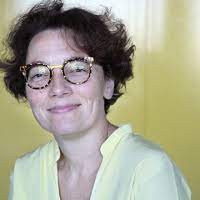
Dr. Tarte has a background in immunology and hemato-oncology with a focus on B-cell malignancies. Her research is dedicated to the understanding of normal and malignant tumor niches, with a specific interest in the mechanisms of co-evolution of tumor clones and their microenvironment. She heads a research unit of ~60 people, comprising clinicians and biologists, dedicated to basic and translational research in the field of normal and malignant B-cell differentiation and an ISO9001-certified immunomonitoring lab devoted to the evaluation of novel biotherapy approaches. She is involved in several research and clinical programs dealing with the understanding of the role of tumor microenvironment and how it could be a target for new therapeutic strategies and/or provide predictive and prognostic biomarkers. Dr Tarte was one of the pioneers in the use of mesenchymal stromal cells (MSC) to treat inflammatory diseases and degenerative disorders, providing landmark studies on clinical-grade MSC mechanisms of action and helping in the definition of regulatory rules for their clinical use.
Coffee break
Chromatin & Epigenetics
Chairs: Maud Borensztein & Cyril Esnault
15:45: Michael Weber, Université de Strasbourg
"DNA methylation: function and regulation in mammalian development"
Alumni from Thierry Forné's Team
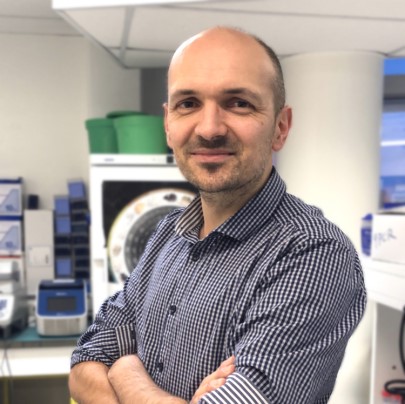 A former student of the Ecole Normale Supérieure (ENS) in Lyon, Michaël Weber obtained his PhD at the IGMM in 2003 in the team of Thierry Forné studying the molecular mechanisms of genomic imprinting in the mouse. He then joined the laboratory of Dirk Schübeler at the Friedrich Miescher Institute in Basel (Switzerland) for his postdoctoral training and carried out studies on the distribution of DNA methylation at the genome level in mammalian cells. After returning to the IGMM as an INSERM research fellow in 2008, he moved to Strasbourg in 2011 to create his team "Epigenetic regulation of cell identity" with the support of ATIP-Avenir and ERC grants. Michaël Weber and his team conduct research on the epigenetic regulation of mammalian genomes by DNA methylation. They combine genetic, genomic and bioinformatic approaches to study the functions and targeting mechanisms of DNA methylation in embryonic development and in the context of human pathologies.
A former student of the Ecole Normale Supérieure (ENS) in Lyon, Michaël Weber obtained his PhD at the IGMM in 2003 in the team of Thierry Forné studying the molecular mechanisms of genomic imprinting in the mouse. He then joined the laboratory of Dirk Schübeler at the Friedrich Miescher Institute in Basel (Switzerland) for his postdoctoral training and carried out studies on the distribution of DNA methylation at the genome level in mammalian cells. After returning to the IGMM as an INSERM research fellow in 2008, he moved to Strasbourg in 2011 to create his team "Epigenetic regulation of cell identity" with the support of ATIP-Avenir and ERC grants. Michaël Weber and his team conduct research on the epigenetic regulation of mammalian genomes by DNA methylation. They combine genetic, genomic and bioinformatic approaches to study the functions and targeting mechanisms of DNA methylation in embryonic development and in the context of human pathologies.
16:20: Frédéric Pontvianne, Université de Perpignan
“Gene dose, dosage and positioning control at the allelic level in plant cells"
Alumni from Edouard Bertrand's Team
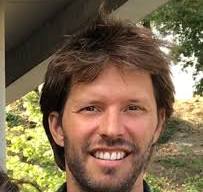 Frédéric Pontvianne, DR2 CNRS, is the founder and co-director of the "Epigenetic Mechanisms and Chromatin Architecture" team at the Plant Genome and Development Laboratory in Perpignan, France. He has 15 years of experience in plant genomics and cell biology. His work contributes to understanding how chromatin organisation, nuclear gene positioning and epigenetic regulation affect gene dose and dosage control. To elucidate the intricate mechanisms that control gene expression, he has developed novel approaches in cell biology such as FACS isolation of nucleoli, in genomics such as identification of nucleolus-associated chromatin domains and in microscopy with the ANCHOR in planta system, required for live-DNA imaging.
Frédéric Pontvianne, DR2 CNRS, is the founder and co-director of the "Epigenetic Mechanisms and Chromatin Architecture" team at the Plant Genome and Development Laboratory in Perpignan, France. He has 15 years of experience in plant genomics and cell biology. His work contributes to understanding how chromatin organisation, nuclear gene positioning and epigenetic regulation affect gene dose and dosage control. To elucidate the intricate mechanisms that control gene expression, he has developed novel approaches in cell biology such as FACS isolation of nucleoli, in genomics such as identification of nucleolus-associated chromatin domains and in microscopy with the ANCHOR in planta system, required for live-DNA imaging.
17:00: Keynote: Julie Carnesecchi, Institut de génomique fonctionnelle de Lyon
“Uncovering cell fate decisions by integrating transcription factors into RNA-regulatory networks”
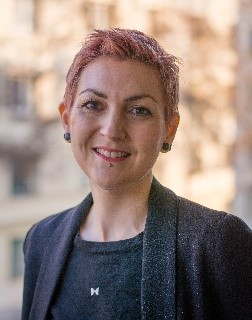 Julie Carnesecchi obtained her PhD in 2014 from the Institute of Functional Genomics of Lyon (IGFL), where she studied transcription and chromatin regulatory networks in breast cancer. She then joined the lab of Ingrid Lohmann for her postdoc at the Centre for Organismal Studies in Heidelberg, Germany. There, she investigated Hox regulatory networks during the embryonic development of Drosophila melanogaster. Her work revealed that Hox transcription factors establish tissue-specific interactions with proteins that regulate distinct layers of gene expression, from chromatin to mRNA processing. Subsequently, her research uncovered a novel molecular function of Hox transcription factors in mRNA splicing. In 2021, she returned to France as a CNRS researcher and continued to develop her research, hosted by the lab of Samir Merabet at IGFL. Starting in 2024, she will establish her research group at the IGMM, focusing on deciphering the RNA regulatory function of transcription factors and its contribution to cell fate decisions.
Julie Carnesecchi obtained her PhD in 2014 from the Institute of Functional Genomics of Lyon (IGFL), where she studied transcription and chromatin regulatory networks in breast cancer. She then joined the lab of Ingrid Lohmann for her postdoc at the Centre for Organismal Studies in Heidelberg, Germany. There, she investigated Hox regulatory networks during the embryonic development of Drosophila melanogaster. Her work revealed that Hox transcription factors establish tissue-specific interactions with proteins that regulate distinct layers of gene expression, from chromatin to mRNA processing. Subsequently, her research uncovered a novel molecular function of Hox transcription factors in mRNA splicing. In 2021, she returned to France as a CNRS researcher and continued to develop her research, hosted by the lab of Samir Merabet at IGFL. Starting in 2024, she will establish her research group at the IGMM, focusing on deciphering the RNA regulatory function of transcription factors and its contribution to cell fate decisions.
Closing
Sponsors institutionnels:
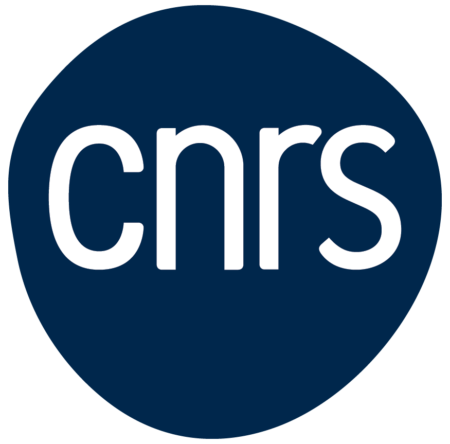
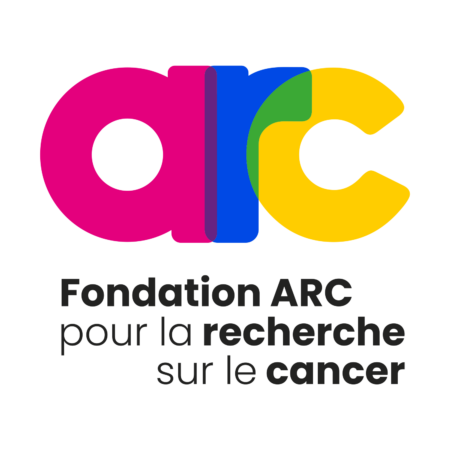

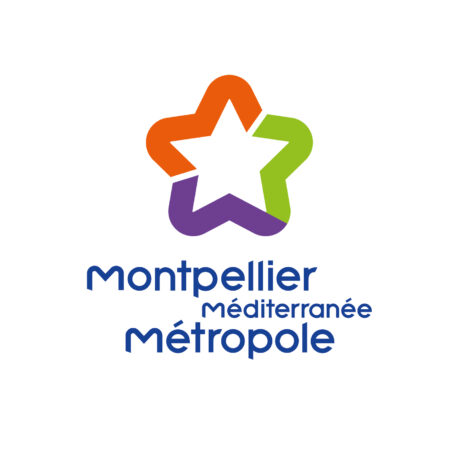
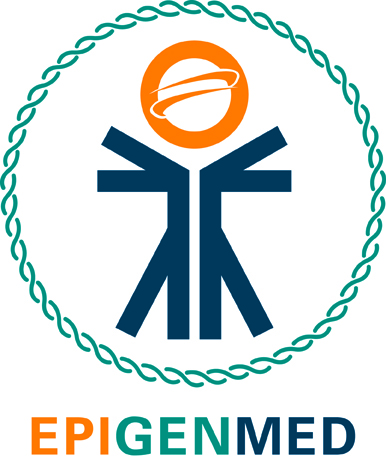
Sponsors platinium:
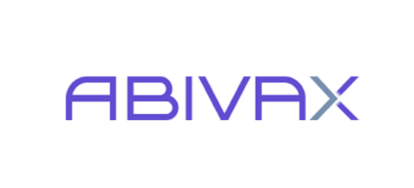
![]()
Sponsors :




